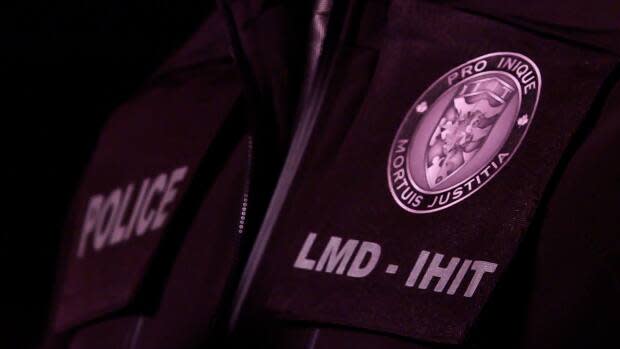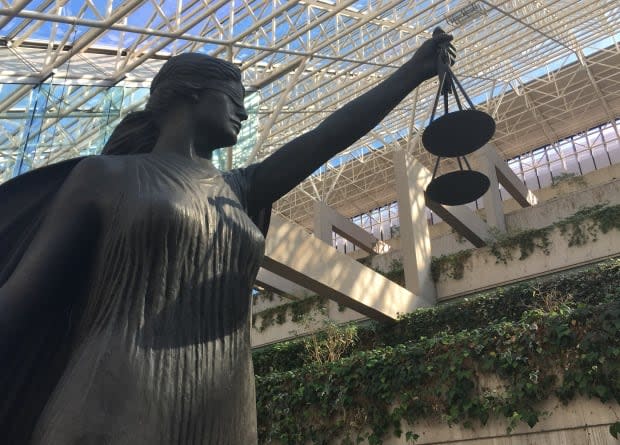Investigators lose bid to keep blowtorch seized as evidence after death of child in 2019 fire

A B.C. judge has rejected a bid by police to keep a blowtorch seized by detectives probing a July 2019 house fire that left a child dead and the victim's father under investigation for murder.
According to the ruling, the man — who lived in the house with his wife and two children— is also being investigated for the attempted murders of his spouse and the surviving child as well as arson with disregard for human life.
The blowtorch was the last piece of nearly 80 items of evidence remaining in police custody.
Nearly two years after the child's death, the investigation has still not concluded, M.P. is living in another province and no charges have been laid.
"There has been little by way of progress in the investigation, with gaps of months at a time in between various investigative steps," New Westminster B.C. Supreme Court Justice W. Paul Riley wrote.
"Considering all of this, my conclusion is that it is not in the interests of justice to grant an order for further detention."
'The direct application of a blowtorch'
The ruling, issued at the beginning of July, provides a window into a homicide investigation that appears all but stalled.
The exact date and location of the fire are redacted in order to protect the identity of the individuals involved.

"Members of the local fire department responded to find a number of people unconscious inside the house. Firefighters took note of a blowtorch in the house, and deemed the cause of the fire suspicious," Riley wrote.
The family members were all rushed to hospital. The father survived and was released from hospital with no lasting injuries.
The man's spouse "also survived but was left with no memory of the circumstances in which she ended up in the hospital," the judge wrote.
"One of the children was treated for injuries sustained in the fire and later released from the hospital. The other child succumbed to the effects of smoke inhalation."
According to the ruling, an Integrated Homicide Investigation Team member called the case complex: at least 30 police officers have been involved, including six IHIT investigators; outside experts have been called in; and a "key witness" — the spouse — "suffered a loss of memory and is therefore unable to give any account of the events under investigation."
In an affidavit, the IHIT detective said the father gave several interviews after leaving the hospital in which he said he did not know what had caused the fire.
Last year, investigators travelled to the province where the man now lives to get another statement.
"[He] said he does not know how it started, as he could only recall waking up in the hospital," the judgment says.
"When asked about the blowtorch, [he] said he had a propane torch for soldering, and that he kept it in a tool bag stored in the bedroom closet."
Police have tried to speak with the man's spouse seven times, but she has been unable to remember anything.
In May, police received a draft fire analysis report that claimed "the fire was consistent with the direct application of a blowtorch."
'A very serious matter'
Canadian law requires police to justify detention past three months of items that would otherwise engage the privacy and property rights of their owners. Once a person is charged, the evidence can be kept until the conclusion of the case.
In previous cases, police have argued they run the risk of tipping suspects off to the existence of investigations when forced to explain the reasons why they want to keep evidence past the time limits mandated by the Criminal Code.

In his ruling, Riley points out that the purpose of requiring police to make repeated trips to court to justify the further detention of evidence is not "to impose a timeline for the conduct of criminal investigations."
Instead, he says, it's to achieve "a balance between the societal interest in the investigation of crime on the one hand, and the property and privacy interests of individuals with an interest in things that have been seized in a criminal investigation on the other hand."
The IHIT detective claimed evidence might be lost if police were forced to give back the blowtorch, but Riley rejected that idea.
"The police have had the blowtorch for almost two years now, giving them ample opportunity to forensically assess it," he wrote.
"There is no evidence of any ongoing or pending forensic analysis of the blowtorch, and no suggestion of any further investigative avenues in that regard."
Crown counsel also argued that it was in the public interest to respect the request of authorities wanting to hold onto an item "used to start a fire leading to the death of a child."
The judge concluded by pointing out that it was the second time the police had come to the court looking for a one-year extension.
"The investigation of a fatal house fire is indeed a very serious matter, but it has not yet led to any charges, and none are on the horizon almost two years after the events in question," he wrote.
The ruling doesn't mean the blowtorch will be returned to the father. Riley said no one has applied to have it returned.

